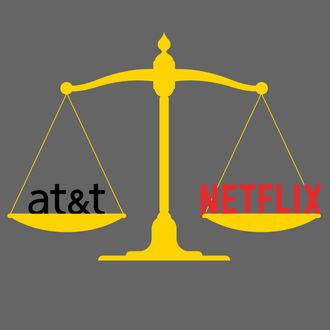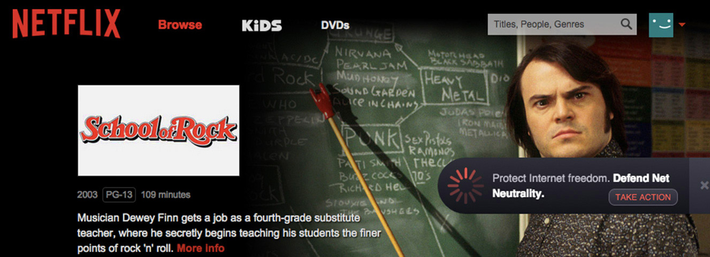
Earlier today, the United States Court of Appeals District of Columbia Circuit ruled in favor of upholding the Open Internet Rules, a set of rules that classifies internet-service providers as common carriers and allows for stricter regulation of accessibility and cost. In other words: net neutrality.
The debate over net neutrality has pit internet providers, cable companies, and web platforms against one another since the Federal Communications Commission enacted the rules in February 2015. Under the 2015 FCC decision (the same one upheld today), internet-service providers were classified as common carriers — companies responsible for transporting goods or people and therefore subject to certain special regulatory rules, the most important of which is that they’re responsible for providing service without discrimination. (Bus lines, railroads, and freight companies typically function as common carriers.)
As common carriers, providers are “defined as a utility,” which means “more rigorous policing of broadband providers and greater protections for web users,” the New York Times reports. The decision obviously didn’t thrill companies like AT&T, who stood to lose profits as a result, but companies like Google and Netflix, which rely on ISPs providing unfettered access to their sites, were pleased. (AT&T was one of several broadband companies and lobbying groups behind today’s failed appeal.)
The 2015 ruling also marked the first time net neutrality was applied to mobile internet carriers in addition to traditional internet-service providers. Before 2015, wireless internet providers were not subject to the same rules and regulations as providers like Comcast. AT&T, Verizon, and T-Mobile all initially spoke out against the changes, claiming the newly enforced rules would harm a competitive mobile market. T-Mobile’s CEO John Legere later recanted saying he was for internet rules like “no discrimination” and “no blocking,” the Verge reported. (An interesting turn given that Legere is behind T-Mobile’s Binge On plan, which lets users stream from a set group of services, like Sling, Netflix, Hulu, and Spotify, without using any data. The plan uses a legally questionable practice known as “zero-rating,” which prioritizes certain products and platforms over others. Legere, for his part, has also said he is “fairly confident” Binge On is legal under the new Open Internet Rules, since any company that meets T-Mobile’s requirements can participate. Like we said, it’s questionable.)

If you think back to September 2014, you might remember people changing their profile pictures and web companies decorating sites with loading icons to symbolize what life would be like online without net neutrality. (Basically: slower.) At the crux of the argument is the idea that service providers should consider all network traffic the same. This means not speeding up service, or creating “fast lanes,” for larger companies that can afford to pay. And on the flip side, it means not slowing down services for competitors or companies that won’t (or can’t) pay.
Under today’s ruling, internet access will continue to be considered a utility. And while this is a major blow to the broadband industry, it likely won’t change much for your day-to-day internet experience, especially since these rules have already been in effect for a year. You will likely still experience slower service at high-use times (like a Saturday night when everyone is getting their Netflix-and-chill on) and you aren’t going to get any more data on your cell plan out of the deal. Sorry.





























